UPEC 2020 will host the following Plenary Speakers:
- Anastasios Bakirtzis – Value of Energy Storage for Renewable Integration
- João P.S. Catalão – Towards Higher Renewables Penetration in Insular Power Systems
- Javier Contreras – Market regulation of energy storage in Europe
- Sasa Djokic – Evaluation of Uncertainties in Networks with Renewable-Based Electricity Generation Systems
- Bruce Rigby – Experiences with Using Real-time Simulation as a Tool in University Undergraduate Teaching
- Luca Orrù – Energy Transition and innovation framework: challenges for electricity system operation
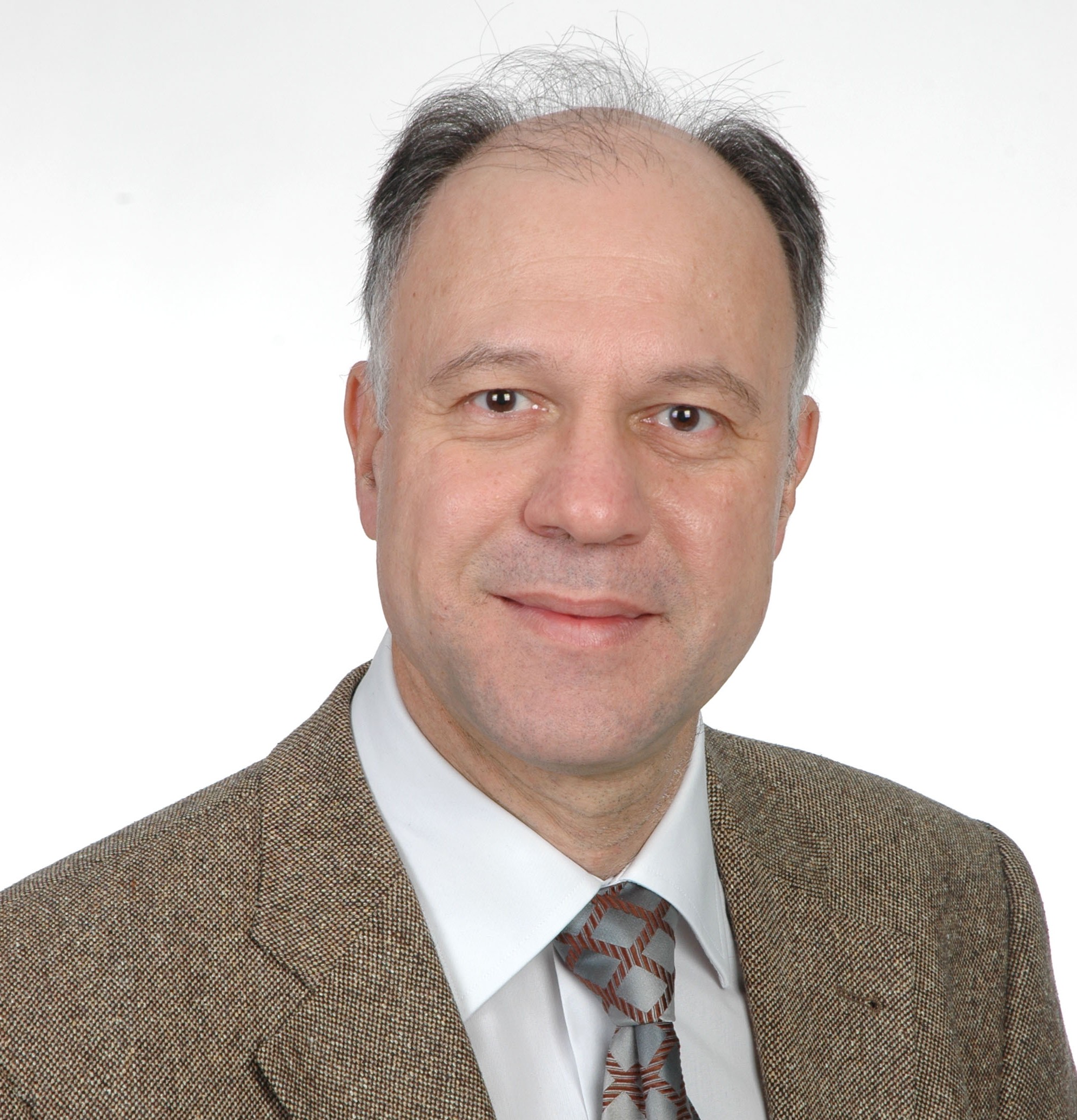 | Anastasios Bakirtzis Power System Laboratory Aristotle University of Thessaloniki, Greece |
Value of Energy Storage for Renewable Integration
Electricity storage is expected to become one of the key actors in the future decarbonized power system, utilizing very high shares of renewables. Integrating large amounts of variable renewable generation increases the need for flexibility in power systems to balance supply and demand, and storage is one of the main flexibility provision alternatives. In this speech, after a brief introduction of the major energy storage technologies, I will discuss the main services storage can provide to the electric power system and analyze the value of storage to the power system and to the investor. I will then address the impact of large-scale RES integration on the operation of the electric power system, on the electricity market and on the value of storage. Finally, I will discuss the main barriers to the widespread adoption of storage and present the recent steps towards their elimination.
CV
Anastasios G. Bakirtzis is professor at the Department of Electrical and Computer Engineering, Aristotle University of Thessaloniki, Greece. He holds a Diploma in Mechanical and Electrical Engineering from National Technical University of Athens, Greece and a Ph.D in Power Systems from Georgia Institute of Technology, U.S.A. His research interests are in Power System Operation, Planning and Economics. He was PI of more than 30 research projects funded by European and Greek organizations. He has authored more than 200 technical papers in scientific journals and conference proceedings. He is member of the Editorial Board of the IEEE Transactions on Smart Grid, the IEEE Transactions on Sustainable Energy, the IET Proceedings on Renewable Power Generation and the Journal of Modern Power Systems and Clean Energy (Springer). In the past, he served a full term (2008–2013) in the Editorial Board of the IEEE Transactions on Power Systems. Prof. Bakirtzis is Fellow of IEEE, member of CIGRE and member of the Technical Chamber of Greece.
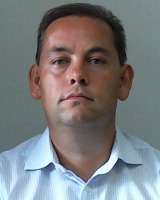 | João P.S. Catalão Faculty of Engineering of the University of Porto (FEUP) and INESC TEC Porto, Portugal |
Towards Higher Renewables Penetration in Insular Power Systems
A large share of renewable energy sources installed capacity is taking place in insular electricity grids. However, the increasing renewables penetration in the generation mix of insular power systems presents a big challenge in the efficient grid management, mainly due to the limited predictability and the high variability of renewables, in conjunction with the relevant small size of most of these networks. This Plenary Speech addresses the effects of large-scale integration of renewables on the planning and operation of insular power systems, presenting efficient solutions and tools towards the development of a sustainable and smart grid. Different insular electricity grids in five countries across Europe will be highlighted.
CV
João P.S. Catalão received the M.Sc. degree from the Instituto Superior Técnico, Lisbon, Portugal, in 2003, and the Ph.D. degree and Habilitation for Full Professor (“Agregação”) from the University of Beira Interior, Covilha, Portugal, in 2007 and 2013, respectively. Currently, he is a Professor at the Faculty of Engineering of the University of Porto (FEUP), Porto, Portugal, and Research Coordinator at INESC TEC. He was the Primary Coordinator of the EU-funded FP7 project SiNGULAR, a 5.2-million-euro project involving 11 industry partners. He has authored or coauthored more than 750 publications, including 325 journal papers (more than 95 IEEE Transactions/Journal papers), 366 conference proceedings papers, 5 books, 40 book chapters, and 14 technical reports, with an h-index of 55, an i10-index of 245, and over 12,000 citations. He is the General Co-Chair of SEST 2020, technically sponsored by IEEE PES, IES and IAS. He is the Promotion and Outreach Editor of the new IEEE Open Access Journal of Power and Energy, an Editor of the IEEE Transactions on Smart Grid, an Editor of the IEEE Transactions on Power Systems, and an Associate Editor of the IEEE Transactions on Industrial Informatics. Moreover, he has won 4 Best Paper Awards at IEEE Conferences.
 | Javier Contreras E.T.S. de Ingenieros Industriales, University of Castilla – La Mancha 13071 Ciudad Real, Spain |
Market regulation of energy storage in Europe
This presentation will cover current state of the art on energy storage in Europe addressing several aspects. First, the main storage technologies will be presented, especially those which are mainly used in European countries. Next, their main functionalities in transmission and distribution grids will be shown. Several key applications in operation and planning will be presented illustrated by significant European Projects. Finally, their integration in several European regulatory frameworks and National Regulations will be discussed. To conclude, future challenges of energy storage will be enumerated.
CV
Javier Contreras received the B.S. degree in Electrical Engineering from the University of Zaragoza, Zaragoza, Spain, in 1989, the M.Sc. degree in Electrical Engineering from the University of Southern California, Los Angeles, in 1992, and the Ph.D. degree in Electrical Engineering from the University of California, Berkeley, in 1997. Since 1998 he has been with the University of Castilla – La Mancha (UCLM), Ciudad Real, Spain, where he is currently Full Professor. Dr. Contreras has also been a visiting scholar at the University of Hong Kong and the University of Illinois at Urbana-Champaign. He has been a consultant for several electricity companies in Spain and has participated as principal investigator in national, European and international research projects. He is currently editor of IEEE Transactions on Power Systems, IEEE Transactions on Smart Grid and IEEE Transactions on Sustainable Energy, among others. He is an IEEE Fellow.
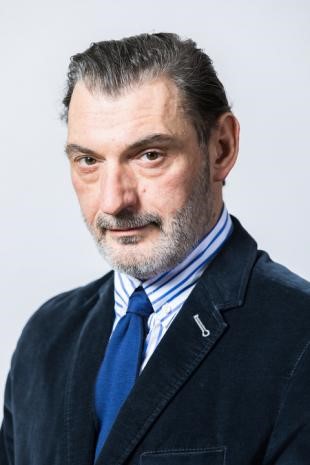 | Sasa Djokic The University of Edinburgh Edinburgh, Scotland, UK |
Evaluation of Uncertainties in Networks with Renewable-Based Electricity Generation Systems
Due to the raising concerns about the climate change and depleting fossil fuel reserves, recent years have seen an unprecedented increase in the numbers and sizes of renewable-based electricity generation systems (REGS). In that context, solar and wind energy are amongst the highest-utilised “clean” and renewable energy resources, although they both exhibit strong and stochastic spatio-temporal variations, which therefore result in uncertain and difficult to predict REGS outputs. The assessment and quantification of uncertainties in REGS power outputs are important not only for owners of wind farms (WF) and photovoltaic (PV) plants, but also for system operators, due to their impact on the variations of network power flows and related uncertainties in network operating conditions.
The recent results related to evaluation of uncertainties in REGS power outputs will be presented and illustrated using measurements of actual wind turbines (WTs) and PV installations, including:
- Removing of outliers and replacement of missing data in the measured datasets;
- Development and validation of “operational power curve” REGS models;
- Modelling at individual-unit and whole-plant levels (e.g. WT-level vs WF-Level analysis)
- Multidimensional analysis in empirical, correlational and probabilistic REGS models;
- Target applications: Planning vs operational studies & hindcasting vs forecasting analysis.
CV
Dr Sasa Djokic (M’05–SM’11) received Dipl. Ing. and M. Sc. degrees in Electrical Engineering from the University of Nis, Nis, Serbia, and Ph. D. degree in the same area from the University of Manchester Institute of Science and Technology (UMIST), Manchester, United Kingdom. He is currently a Reader in Electrical Power Systems at the University of Edinburgh, Scotland, United Kingdom, teaching undergraduate and graduate (master and doctoral level) classes on Fundamentals of Electrical Engineering, Electrical Power Systems Engineering, Energy Systems, Electrical Machines, Power Systems Economics, Network Integration of Renewable Generation and Power Quality. Dr Djokic has published more than 250 papers, of which three received IEEE Best Paper Awards. Over the past 27 years, Dr Djokic has performed research in the areas of: theoretical electromagnetics, illuminating engineering, power quality, load and distributed generation modelling and, most recently, system reliability and security analysis, as well as evaluation of much wider ranges of uncertainties introduced by new technologies on both supply and demand sides. He has contributed to several national and international standards, technical reports and engineering recommendation and is active in a number of CIGRE/CIRED, IEEE, IESNA, IEC/CISPR and other international Working Groups, Task Forces and Committees.
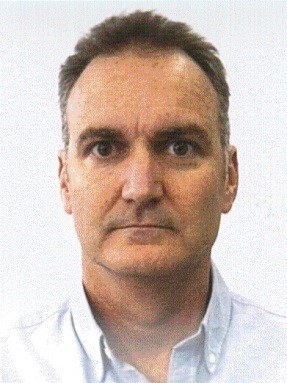 | Bruce Rigby Representative for RTDS Technologies in Africa |
Experiences with Using Real-time Simulation as a Tool in University Undergraduate Teaching
Bruce Rigby spent is currently an RTDS Technologies Representative but prior to that he spent many years at a university and, during that time, made extensive use of RTDS simulators for both research and teaching activities. In this presentation Bruce will describe his experience in using RTDS simulators in a variety of ways to support undergraduate teaching. The main focus of the presentation will be to share some approaches that were found to be successful when using RTDS simulators for final-year undergraduate thesis projects in electrical protection and power system control applications that involved closed-loop, hardware-in-the-loop (HIL) implementations by the students. It was found that with a well-structured initial training approach it was possible to get final-year undergraduate students to master the concepts of RTDS simulation and HIL testing on an intentionally-simple protective relay and then for them to progress to tackling considerably more-advanced, open-ended protection and control projects in a self-directed manner appropriate for final-year project work. The presentation will take the example of transmission line distance protection to illustrate the approach taken in guiding the students from initial, closely-supervised training on the simulator through to open-ended, self-directed work on HIL-connected protection and control systems.
CV
Bruce Rigby spent many years as an academic at the University of Kwazulu-Natal in South Africa before leaving for industry where he is currently a representative for RTDS Technologies in Africa. During his years in academia he was Technical Manager of the Real Time Power Systems Studies Centre at the Durban University of Technology and had research interests in power system stability and control, power system protection, and real-time simulation. He has a BSc Eng, MSc Eng and Phd degrees, all from the University of Natal.
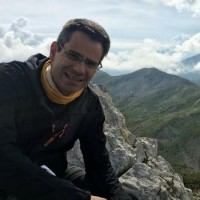 | Luca Orrù Head of System Operation Technologies Unit Innovation Factory Terna, IT |
Energy Transition and innovation framework: challenges for electricity system operation
Key figures about italian power system are introduced (actual data and future scenario), in order to substantiate main topics of energy transition in act and present its impacts and challenges for Transmission System Operator and in generale for system operation. Some focuses on implications for stability and security are discussed and enhanced, in particular, the needs for storage capacity and flexibility. A global framework of key enablers, from the point of view of TSOs, is presented. Finally, the role of innovation is discussed and main innovation project streams activated within Terna framework are briefly illustrated.
CV
Industrial Engineer graduated at the University of Rome – Tor Vergata and specialized in Energy Management, actually Head of System Operation Technologies Unit in the Innovation Factory of italian Transmission System Operator (Terna – www.terna.it). In about 15 years of work experience in Terna he covered several different positions: senior innovation developer & manager; transmission grid maintenance coordinator; responsible for HV Grid connections for the North Italy area; security and adequacy analyst, during the implementation of new Italian energy markets. Involved in several european projects and working groups, he also lead WP5 within “Osmose” project (LCE-04 Call).
